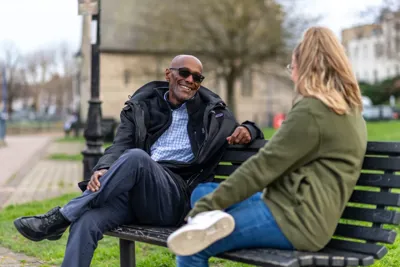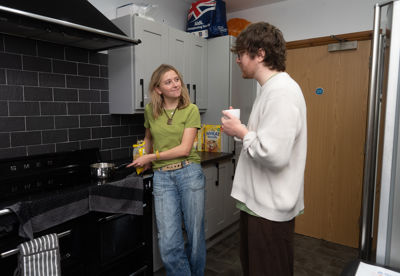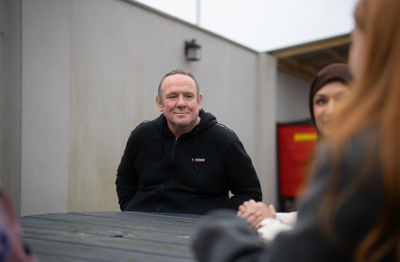Do I have depression?
If you’re feeling down or struggling to find joy in life, it might be a sign that you are experiencing depression.
This blog will help you understand the symptoms of depression, how they might affect you, and the steps you can take towards recovery.
Understanding depression
Depression is more than just feeling sad or having a bad day. It's a serious mental health condition that affects how you feel, think, and act. If you have been experiencing symptoms for two weeks or more, it is recommended that you seek help from a GP or mental health professional.
How you might feel with depression
People experience depression in different ways. You might feel down, upset, or tearful. Restlessness, agitation, and irritability are also common. Many people experience feelings of guilt, worthlessness, and a sense of emptiness and numbness.
Physical symptoms of depression
Depression doesn't just affect your mind; it can also impact your body. You might feel tired all the time, experience physical aches and pains without a clear cause, or notice changes in your appetite and weight.
Changes in behaviour
Depression can lead to changes in your behavior. You might avoid social events and activities you usually enjoy and have difficulty speaking or thinking clearly. You might lose interest in sex. Increased use of tobacco, alcohol, or other drugs can also be a sign you are experiencing depression.
Impact on daily life
The symptoms of depression can make everyday tasks feel overwhelming. You might struggle with concentration, memory, and decision-making. Sleep patterns can also be disrupted, leading to either difficulty in getting to sleep, or over-insomnia or excessive sleeping. Learn how mental illness can affect daily life.
Seeking support and treatment
If you think you might have depression, it's important to seek support. Talk to your GP or a healthcare professional who can provide a diagnosis and discuss treatment options. Therapy, medication, and lifestyle changes can all play a role in recovery.
Medication support
For some people, medication can be an effective part of treating depression. Antidepressants can help balance chemicals in your brain that affect mood and emotions. Always consult with a healthcare provider to find the right medication for you.
The role of exercise
Regular physical activity can have a positive impact on your mood and energy levels. Exercise releases endorphins, which are natural mood lifters. Even a short daily walk can make a difference. Read more about physical activity and mental illness.
Cognitive behavioral therapy (CBT)
CBT is a type of therapy that helps you identify and change negative thought patterns. It can be particularly effective for treating depression by helping you develop healthier ways of thinking and coping. Learn more about CBT.
Joining support groups
Connecting with others who understand what you're going through can be incredibly beneficial. Support groups provide a safe space to share experiences, offer encouragement, and learn from others. Find a support group in your area.
Remember, you don't have to face depression alone. If you feel ready, try reaching out to a healthcare professional, join a support group, or talk to someone you trust.
With the right support and treatment, you can start to feel better. If you need immediate help, go to our Get Help Now page or visit your nearest A&E room.




